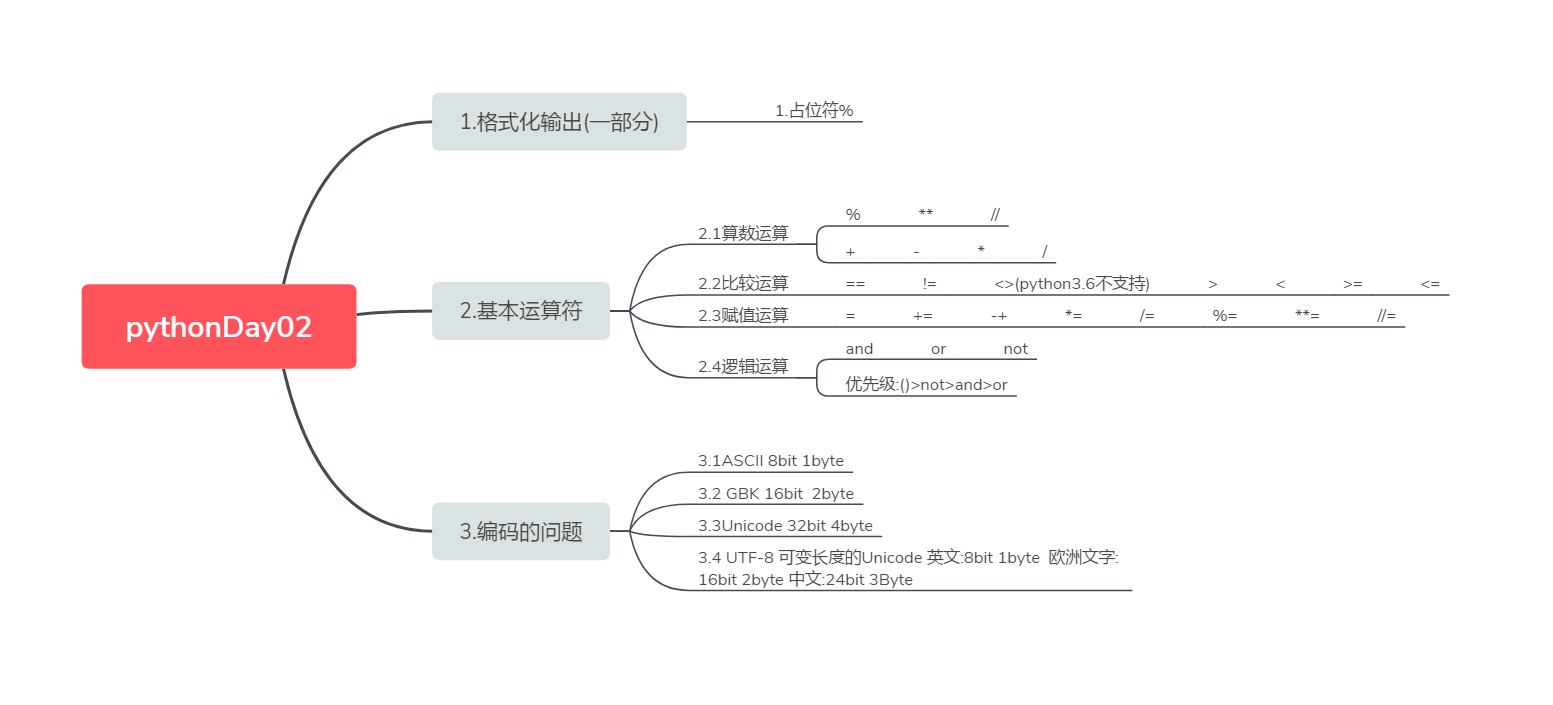day02-2018-10-18-python基礎
阿新 • • 發佈:2018-11-10

佔位符
#%表示佔了一個位置,等著後面來填,
# info='''
# =============%s的名片==========
# -----姓名:%s-----
# -----電話:%s-----
# -----公司:%s-----
# -----職位:%s-----
# ===============================
# '''
# print(info%('VastTry','VastTry','1388309xxxx','Google','CEO'))
#%s是萬能的,如:
# print('我叫VastTry,今年%s歲'%12)#接受一個整型的12
# print('我叫VastTry,今年%s歲'%'12')#接受一個str型別的12
#結果是一樣的
#我叫VastTry,今年12歲
#我叫VastTry,今年12歲
#%d能接受整型的數字,和浮點型數字
#print('我叫VastTry,今年%d歲'%'12')#%d format: a number is required, not str
# print('我叫VastTry,今年%d歲'%12.0)#我叫VastTry,今年12歲
# print('我叫
#注意事項,程式碼如下
#print('他叫%s,擁有全國0.01%的財產'%'馬雲')#TypeError: not enough arguments for format string
#print('他叫馬雲,擁有全國0.01%的財產')#他叫馬雲,擁有全國0.01%的財產
運算子
#首先要知道
#x or y ,if x==false then y else x
#x and y ,和x or y 相反
#()>not>and>or
#試題如下:
print(11 or12)
#11
print(0 or 12)
#12
print(1 and 2)
#2
print(0 and 1)
#0
#接下來 來點別的有意思的,True 相當於1 False 相當於0,但是不等於
print(2>1 or 2 )
#True
#True or 2<==> 1 or 2 -->True
print(1>2 or 2)
#2
#False or 2 <==> 0 or 2-->2
print(2>1 and 2)
# True and 2 <==> 1 and 2 -->2
print(1>2 and 2)
#False and 2 <==> 0 and 2 -->0-->False
編碼
#1.ASCII 碼有 128 個
#本來用7位二進位制就剛好能裝完
#方便以後擴充套件 增加到256個 即8位
# 2.GBK, 中文現在大概有90000多個漢字,
# 一開始設計的GBK位16位
# 2**16=65536基本滿足日常使用
#3.Unicode 32bit 4byte ,佔用空間大
#4,utf-8可変長的unicode
# 英文:8bit 1byte
# 歐洲文字: 16bit 2byte
# 中文:24bit 3Byte
